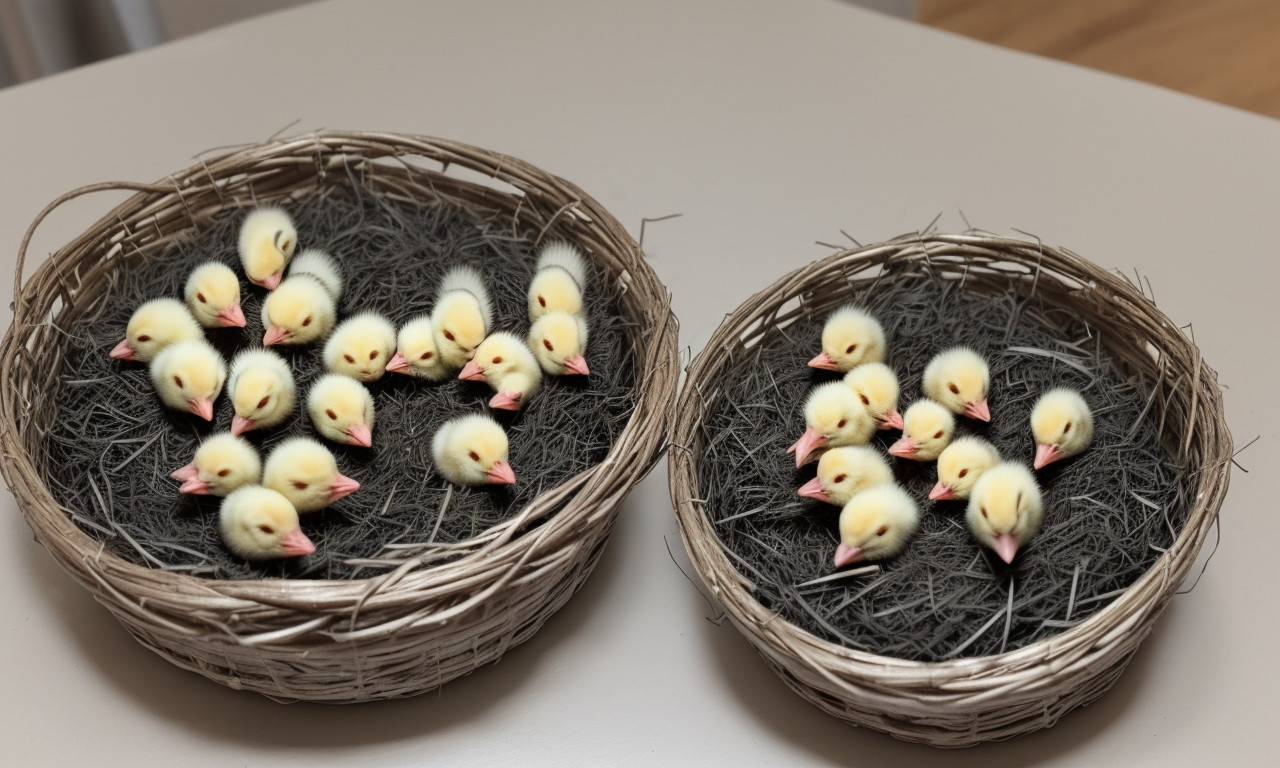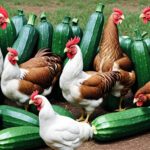Rearing chickens is an immensely rewarding venture, especially when you see your flock thriving. As the first six weeks set the foundation for your chicks’ future development and health, understanding the intricacies of their dietary needs is crucial. For 6-week-old chicks, a well-balanced diet is not just a requirement—it’s the cornerstone of a lifetime of vitality. In this comprehensive guide, we will delve into essential diet tips that ensure your young chicks grow into robust, healthy chickens.
For anyone invested in producing a healthy, productive flock, this guide will illuminate the path to optimal nutrition for 6-week-old chicks. Armed with the knowledge of what to feed these fledgling birds, you can watch them flourish under your care.
Understanding the Nutritional Needs of 6-Week-Old Chicks
The dietary requirements of chick temperature charts evolve over time. By six weeks, they’re transitioning from the initial starter feed to a diet that supports their rapid growth phase. Here’s what you need to understand about their nutritional needs:
Essential Macronutrients for Growing Chicks
- Protein: At this age, chicks need a lower protein content compared to the first few weeks of life. Aim for feed with 16-18% protein to foster appropriate growth without causing health issues.
- Carbohydrates: Energy is crucial for active chicks. Complex carbohydrates provide sustained energy that feeds their curiosity and growth.
- Fats: Essential for energy and the absorption of vitamins, fats should be included in the diet in moderation.
Vital Micronutrients for Immunity and Development
- Vitamins: A, D3, E, and K along with B-vitamins are vital for immune function and overall health.
- Minerals: Calcium, phosphorus, and other trace minerals support bone development and vital biological functions.
Crafting the Ideal Diet Plan for Thriving Chicks
To ensure your 6-week-old chicks get everything they need to thrive, follow these recommendations for constructing a dietary plan that is both nutritious and balanced.
Transitioning from Starter to Grower Feed
Grower feed often contains around 16-18% protein and is less dense in nutrients than starter feed, perfectly tailored for the needs of 6-week-old chicks. This transition should be gradual to avoid digestive issues.
The Significance of Consistent Water Access
Fresh, clean water is as essential as food. Chicks should always have access to water to aid in feed digestion and overall hydration, which is critical for their fast-developing bodies.
Supplemental Feeding for Optimal Growth
While specialized chick feed should coffee ground bedding for chickensm the bulk of their diet, you can introduce these supplements cautiously:
- Grit: As chicks start to forage, they require grit to help digest food.
- Vegetables and fruits: Offer in minimal amounts; they can provide additional nutrients and are good for variety.
Make sure any additives or supplements do not exceed 10% of the chick’s overall diet to maintain nutritional balance.
Avoiding Common Feeding Mistakes with 6-Week-Old Chicks
Not all foods are safe for your chicks. To avoid pitfalls, keep these points in mind:
Foods to Exclude:
- Avocado, onions, garlic: These can be toxic to chicks.
- Sweets and processed foods: Unhealthy and do not provide the right nutrients.
- Large feed: Can cause choking; ensure feed is appropriately sized.
Overfeeding and Underfeeding:
Both can lead how to break a broody hen health issues. Monitor chick’s weight and adjust their feed as necessary.
Recognizing and Addressing Nutritional Deficiencies
A chick not getting enough of a particular nutrient may show several signs including weakness, poor growth, or feather abnormalities. To counteract deficiencies:
Balance Is Key
Ensure the feed is complete and balanced for the chicks’ stage in life.
Observe and React
Watch for signs of deficiencies and consult a vet if necessary to adjust the diet or add supplements.
Advanced Feeding Strategies for Premium Growth
Gradual Introduction of New Foods
When introducing new foods, do it slowly to watch for any adverse reactions.
Calculating the Right Amount
Adhere to recommended feeding guidelines and adjust based on the individual chick’s growth rate and health status.
Enhancing Your Flock’s Health with Quality Feed and Practices
The quality of feed and the feeding practices you adopt have a direct impact on the health of your 6-week-old chicks. Employ these strategies for the best outcomes:
Select High-Quality Feed
Choose a reputable brand and check ingredients. Lesser feeds may skimp on essential nutrients.
Implement Proper Feeding Hygiene
- Keep feeding areas clean to prevent the spread of diseases.
- Refresh feed daily to avoid mold and spoilage.
Regular Health Checks
In tandem with proper diet, regular health assessments will catch any issues early and keep your chicks on track.
Final Thoughts and Best Practices Recap
Raising 6-week-old chicks is a rewarding journey that unfolds with the right dietary care. Here’s a recap of the best practices:
- Gradual transition to grower feed.
- Maintain consistent water supply.
- Be cautious with supplements and treats.
- Understand and avoid feeding mistakes.
- Monitor and address nutritional deficiencies.
- Employ advanced feeding strategies for optimal growth.
- Ensure feed quality and hygiene in feeding practices.
By following these guidelines, your 6-week-old chicks will be well on their way to becoming robust, healthy birds. Remember, the investment you make now in their diet and care will reap dividends in the health and productivity of your future flock.






